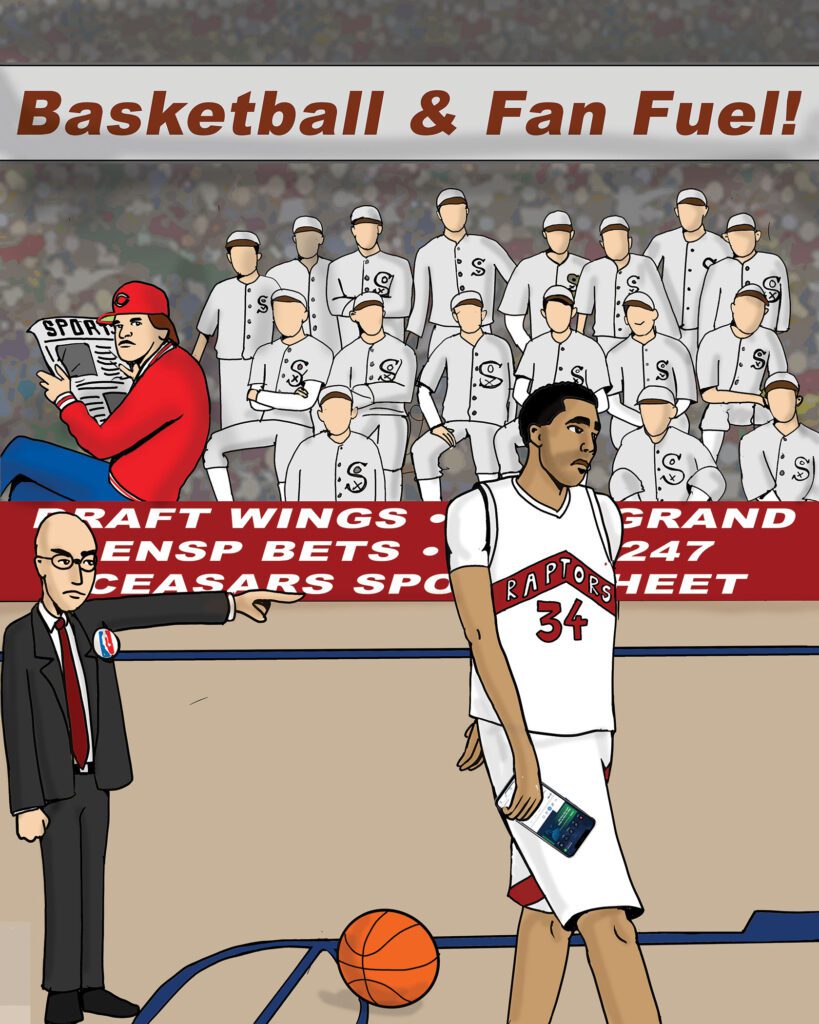
There has been a pendulum swing in the tenor of sports coverage since the introduction of legal gambling on pro contests. Now you can’t watch a game without being reminded that there are thousands of ways to wager on sports. You can bet on anything from an individual player’s stats to when a team might take a time-out. The deluge of sports gambling, with the inevitable ensuing scandals, has created a situation where every time a player takes himself out of the game because of injury or a referee makes a questionable call, you can’t help but wonder if there’s an underlying motivation. Legal sports gambling brings millions of temptations for a corrupt person to damage the games that we love, for the benefit of money.
And how did we get here? From the dawn of civilization, sports betting has gone along with sports. The ancient Egyptians bet on dice and games of skill. The Olympics included wagering starting as far back as 800 B.C. In the U.S., placing illegal sports bets under the table long thrived but was always considered out of the mainstream. But the financial lure of outsized profits proved too powerful to resist, both for corporations backing the online gambling industry and states eager to find new sources of revenue for cash-strapped public coffers. After all, would politicians rather pass painful across-the-board tax hikes or extract dollars from gamblers? Most have decided to endure a little grumbling from anti-wagering moralists rather than ignore the golden gambling goose.
Now that it has become legal around the country, major corporations have turned legal sportsbooks into a $110 billion business, according to 2023 figures. That is a 27.5% increase from 2022, and there’s no reason to believe growth will slow down. That kind of money creates a vacuum and pressure to fill it with players and officials throwing their performances to soak up their share. With the recent lifetime suspension of Toronto Raptors basketball player Jontay Porter for wagering on games he sought to fix by underperforming, the dangers caused by the groundswell of sports betting is clear and undeniable. Then there’s the translator for Los Angeles Dodgers star Shohei Ohtani — the biggest draw in the major leagues for his once-in-a-generation pitching and batting prowess —allegedly stealing $15 million from Ohtani to cover his own gambling debts. So far, Ohtani appears to be an innocent victim. So far.
Baseball has been a professional sport longer than most and has had its own share of gambling scandals. Catcher Pete Rose had a Hall-of-Fame-worthy career but has been kept out of Cooperstown and banned from employment in the major leagues because of his gambling. The 1919 “Black Sox” World Series scandal involved player payoffs in Boston’s Buckminster Hotel around the corner from Fenway Park.
This kind of corruption is considered unforgivable because perpetrators are letting down their teammates who worked to be the best they could be along with the fans who rooted heartily for what they believed to be the best possible performance. There are few sensations more enjoyable, albeit at times nerve-wracking, than watching two teams battle it out until a last-second touchdown, field goal, homer, header, slapshot or buzzer-beater snatches a victory from the jaws of defeat. But with legal sports wagering, an occasional bad call by an official now sparks concern that there was a money-driven motivation for the unexpected whistle. And it has happened in NBA games.
There is no way sports betting is going to stop, but we need to make sure to create a safe environment where the games we love are not infected by gambling dollars. We also need to address gambling addiction. Many sports-betting ads conclude with a quick statement claiming to call for responsible gambling. We all know that gambling addictions have ruined many lives and broken up too many families. This danger requires more than a short reminder at the end of glitzy ads that promise us the big payday is just one more bet away.
Gambling companies have paid big money to create algorithms that encourage more betting. It’s time they use that same data and tracking to identify problem gamblers and shut them off. They have to do what is not in their financial best interest, but in the best interest of the players and games we love. Sports, ideally, is a vehicle for entertainment and inspiration, not a rabbit hole for gambling addicts to wager their lives away. These are tough, almost unrealistic demands of a gambling industry that is growing exponentially. But that is what our society must require if we are going to have sports games free of manipulation by the gambling environment we have allowed to permeate sports.







